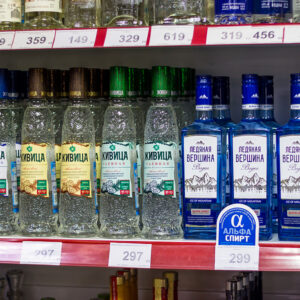LIGHTCAP: U.S. Government Should Require Accurate Liquor Labels

Ranked fourth nationally in the number of federally licensed distilleries, Pennsylvania is well known to the alcohol and brewery industries in this country and proud of its official heritage as the home of Yuengling, “America’s Oldest Brewery.”
Long-standing statewide efforts to ensure product quality and consumer safety in our alcohol industry have nurtured a robust marketplace for both large and small businesses. More important, stringent regulations and enforcement measures have promoted accuracy and transparency in alcohol labeling for consumers.
Our federal government can do more to make this market safer and more equitable for consumers and businesses. After more than a year of missteps and indecision, the U.S. Treasury Department and its Alcohol and Tobacco Tax and Trade Bureau (TTB) have failed to give American consumers rulemaking that updates labeling regulations in the U.S. alcohol industry.
Consumers are understandably confused, public health and safety are compromised, and smaller hard liquor distillers face uneven competitive challenges. The TTB should take immediate steps to help improve this industry.
First, the TTB should create rules that force producers to include important information on their products. Large hard liquor distillers sell products without fully disclosing ingredients or calculating nutritional value. And they routinely neglect to specify the exact alcohol content of their products. Consumers have the right to all of this information.
Hard liquor companies also have flooded the U.S. market with mini liquor bottles, or nips, increasing sales of these 50 ML bottles by 100 percent in just three years. Easily concealed and secretly carried into airports, theaters, concerts, and other venues, mini liquor bottles readily contribute to unruly behavior, underage drinking, DUI, and other abuses that threaten public safety and wellbeing.
States such as New Mexico and Massachusetts have quickly faced this problem. New Mexico bans the sale of mini bottles for off-premises consumption and Massachusetts has given cities and towns similar authority. TTB and the federal government need to insist that alcohol content is clearly labeled on mini bottles and strictly limit their sale in sensitive places, such as airplanes and military bases.
The slow pace of TTB rulemaking for hard liquor distillers is missing another dangerous practice, in which hard liquor companies take advantage of “recognized cocktail exceptions” to avoid disclosing product ingredients. Under this protection, distillers use cocktail terms such as “Margarita” to identify the use of tequila, triple sec, and citrus – but aren’t required to disclose (often strange) additional ingredients.
Many foreign hard liquor companies get huge tax breaks for adding unusual and unknown ingredients to their hard liquor – and for making their products in the Caribbean. Rapid, uniform, and strict labeling rules issued by the TTB for large distillers and companies should end this practice.
Pennsylvania currently ensures accuracy and transparency in alcohol labeling through its Alcohol Beverage Control system, enforcing strict regulations on label content that includes brand name, type of alcohol, alcohol content, country of origin, and important warning statements. Licensed manufacturers, wholesalers, and retailers are inspected regularly to verify compliance with labeling laws.
Treasury and TTB can help protect consumers and better regulate a burgeoning industry by demanding increased transparency from distillers. As the agency considers “Labeling and Advertising of Wine, Distilled Spirits, and Malt Beverages with Alcohol Content, Nutritional Information, Major Food Allergens, and Ingredients,” it should quickly update and modernize industry labeling rules.



